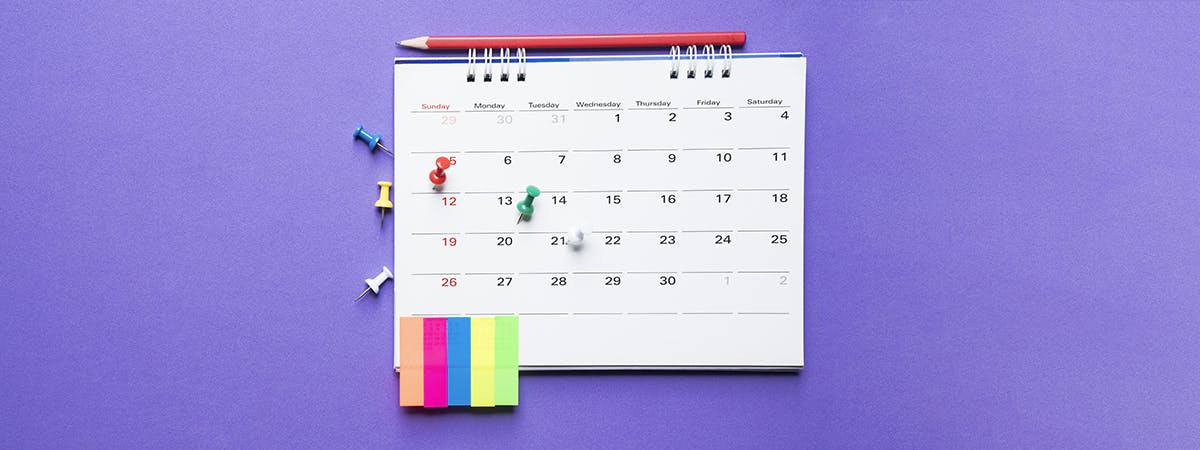Cramming for exams is bad. You know it, we know it and yet everyone still does it to some extent. In fact, sometimes cramming doesn’t have to be bad – here's how to effectively revise when you've only got one week to go.

There’s a right and a very wrong way to revise quickly, out top tips can help you revise effectively, even if you've only got one week to go until the day of your exam.
Whatever you do, don’t pull an all-nighter: losing one night’s sleep can impair reasoning and memory for up to four days! Basically, even if you managed to read all your textbooks twice by sacrificing on your sleep, it’s likely that all that cramming will be wasted. Make sure you sleep well the night before the exam as well as the week before.
Day 1
Identify your weak spots where you need to focus your efforts. Make a list and then create a revision timetable so you know which subjects to revise on which day. Get all your notes together, tidy your study space and create any flashcards or download apps you might need to get started on day two.
Day 2
Stick to your timetable, but make sure you leave time for breaks and food. A great way to make sure you're talking enough breaks is to use the Pomodoro method.
Focus on the most effective ways to revise, like completing past papers and blurting. These methods are effective because they allow you to look back over your work and recognise your mistakes, so you can make improvements and remember not to make the same mistakes in your exam!
Day 3
Repeat day two but with a new topic!
You might be getting a bit bored on day two, so, take a walk or do some exercise if you can. Your brain lights up after exercise and becomes more responsive, meaning you’re more likely to be able to focus and feel motivated.
Want more exam and revision tips?
Sign up now and we'll email you regular updates with top revision tips and tricks that are proven to help you achieve top grades and beat procrastination.
Day 4
Go back to the topics you've already looked at and test yourself using practice papers - if you're running out of past papers to answer, ask your teachers for some questions that they've made up or make up your own, it will still help you put your learning into practice. Most importantly, make sure you time yourself, so it's a realistic practice for the real thing.
Day 5
Identify where you still need help and suggest a group study session with your friends, or ask your family to test you - mixing up study routines and methods will help you remember things better!
Day 6
Condense all your notes, quotes and formulae to memorise and create some colourful and clear mind maps and flashcards. Check you've not missed anything and then treat yourself to an afternoon doing whatever you want - go to the cinema, binge a box set, do some yoga - whatever helps you switch off, go for it!
Day 7
This day is the culmination of all your hard work - gather your flashcards and mind maps, and see what you can remember without having to look at your notes. If in doubt - do a few more practice papers, or just cherry-pick questions that are likely to come up just to make sure you fully understand the topics.
Try not to over-study, as the stress can make you panic you've not learnt enough when in actual fact you've done everything you needed to do. Have the confidence to believe in your abilities!
